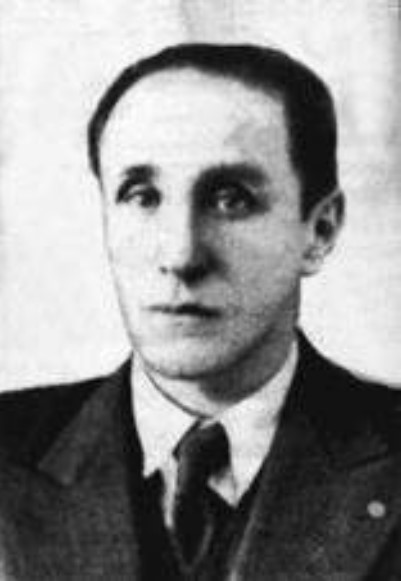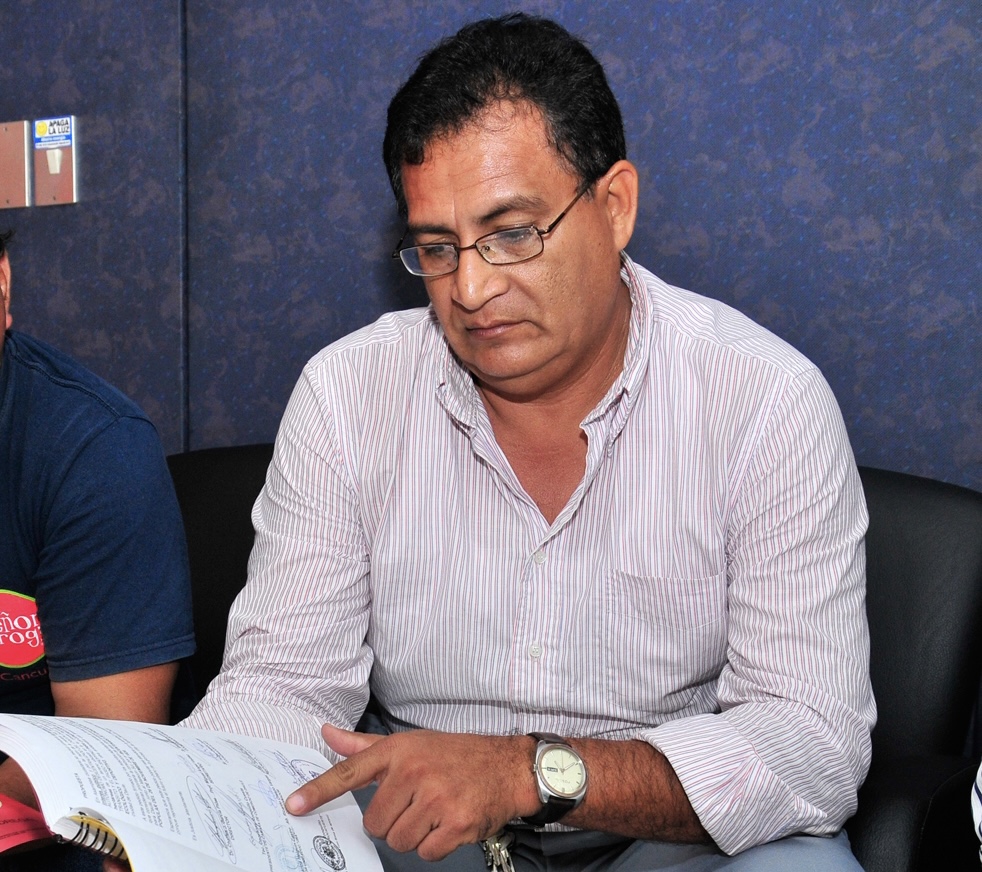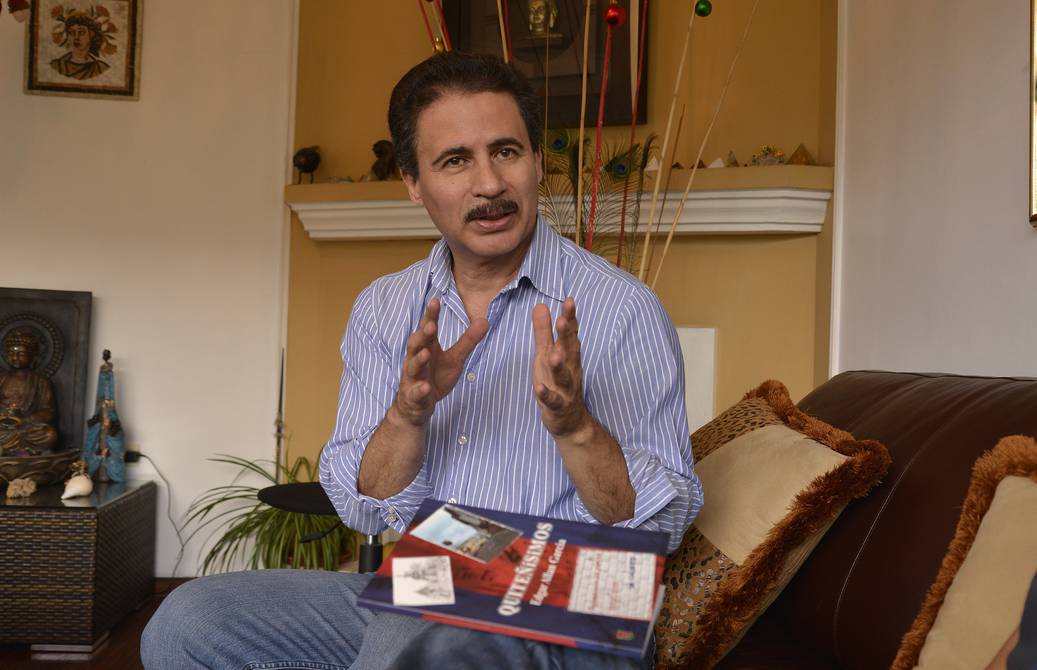Carlos Aguilar Vásquez (Gima, Ecuador, September 15, 1897 – Azogues, Ecuador, April 12, 1967) was an Ecuadorian poet, novelist, and doctor. His work spans multiple genres, including novels, poetry, and essays. Notable works include Los Idrovos (1942), a historical novel exploring Ecuador’s political and social dynamics, and La Cruz del Machete (1928), a narrative about a guerrilla fighter. He also wrote poetry collections like Versos Oscuros (1953) and essays on public health and anti-alcoholism, reflecting his deep social commitment. In addition to his literary contributions, he held various public service roles and received the Fray Vicente Solano award in 1964 for his cultural influence.
Early Life and Education
Carlos Aguilar Vásquez was born on September 15, 1897, in Gima, a parish in the canton of Sigsig, Azuay Province, Ecuador. His parents were Dr. Remigio Aguilar Maldonado, a distinguished schoolteacher and writer, and Ernesta Vásquez Rivera. From an early age, Aguilar exhibited a strong connection to the natural beauty and traditions of his homeland, which permeated his literary works throughout his life.
He completed his primary and secondary education in Cuenca, where he attended schools run by the Christian Brothers and later graduated from the prestigious Benigno Malo School. On October 5, 1923, Aguilar earned his Doctor of Medicine degree from the University of Cuenca. His educational achievements were paired with an early inclination for literature and journalism, as he founded and directed his first publications, Morlaquía and Revista de la Escuela de Medicina de Cuenca, during his student years.
Literary Career
Carlos Aguilar Vásquez’s literary career developed alongside his medical studies. His work spanned poetry, prose, and journalism, with writings characterized by a clear and refined style. He served for many years as editorialist and editor-in-chief of El Mercurio newspaper in Cuenca, gaining a loyal readership with articles published under the pseudonym Jorge Lara.
His literary debut began with the prosaic poetry collection Cita de Interrogaciones (1921), which reflected his philosophical inquiries. He followed this with El País del Sol (1926), a celebration of his homeland’s customs and beauty. Aguilar’s versatility as a writer was further demonstrated with La Cruz del Machete (1928), a novel about a local guerrilla fighter.
His most significant contribution to Ecuadorian literature is the historical novel Los Idrovos (1942), a sociological reflection of Cuenca’s political and social atmosphere during the late 19th and early 20th centuries. Other notable works include Reportajes de Ultratumba (1935), Páginas de Higiene (1940), and Versos Oscuros (1953). Aguilar also wrote extensively on public health, including his essays on anti-alcoholism, such as Dos Conferencias de Divulgación Antialcohólica (1943).
Additionally, Aguilar authored the lyrics to the Himno de Cañar, a regional anthem celebrating the unity, strength, and beauty of the province of Cañar. Set to music by Rafael Sojos Jaramillo, this anthem reflects Aguilar’s deep love for his homeland and its cultural values.
Public Service and Career
Throughout his life, Aguilar held numerous public roles with integrity and commitment. He served as Director of Health for the Southern Zone of Ecuador, President of the Municipal Council of Cuenca, Mayor of Azogues, and President of the Provincial Council of Cañar. Additionally, he was appointed President of the Casa de la Cultura in Cañar and Director of the Casa Cuna orphanage in Azogues. His dedication to public health and culture earned him great respect within Ecuadorian society.
Death and Legacy
Carlos Aguilar Vásquez passed away on April 12, 1967, in Azogues. His death marked the end of a career filled with literary, medical, and civic accomplishments. Posthumously, his daughter compiled and published his complete works in seven volumes between 1970 and 1978, preserving his legacy. In 1964, he received the prestigious Fray Vicente Solano award from the Municipality of Cuenca, recognizing his intellectual contributions to Ecuadorian culture and literature.
Awards and Recognition
In 1964, Carlos Aguilar Vásquez was honored with the prestigious Fray Vicente Solano medal by the Municipality of Cuenca, acknowledging his contributions to Ecuadorian literature and culture. His complete works, edited and published by his daughter, ensure his lasting influence on Ecuador’s literary and cultural heritage.
Timeline of Carlos Aguilar Vásquez’s Life
- 1897: Born on September 15 in Gima, Sigsig, Azuay, Ecuador.
- 1911: Began writing poetry with Romantic influences.
- 1916: Enrolled in the Faculty of Medicine at the University of Cuenca.
- 1921: Published Cita de Interrogaciones.
- 1923: Earned his Doctor of Medicine degree from the University of Cuenca; married Judith Arízaga Arízaga.
- 1926: Published El País del Sol; moved to Manabí and became a municipal doctor.
- 1928: Published La Cruz del Machete, a novel about a guerrilla fighter.
- 1929: Continued to gain recognition for La Cruz del Machete.
- 1935: Released Reportajes de Ultratumba.
- 1938: Became President of the Cantonal Council of Cuenca.
- 1942: Published his most important work, Los Idrovos, a historical novel.
- 1943: Released Dos Conferencias de Divulgación Antialcohólica.
- 1951: Appointed a member of the Juvenile Court in Cañar.
- 1953: Published the poetry collection Versos Oscuros.
- 1960: Published Tardes de Agosto.
- 1964: Awarded the Fray Vicente Solano medal by the Municipality of Cuenca; began travels in America and Europe.
- 1966: Concluded his travels in Europe, and posthumous reflections were later published.
- 1967: Passed away on April 12 in Azogues, Ecuador.
Major Works
- Cita de Interrogaciones (1921)
- El País del Sol (1926)
- La Cruz del Machete (1928)
- Reportajes de Ultratumba (1935)
- Páginas de Higiene (1940)
- Los Idrovos (1942)
- Dos Conferencias de Divulgación Antialcohólica (1943)
- Versos Oscuros (1953)
- Los Derechos Fundamentales del Hombre (1955)
- Versos y Cuadernos de Poesías (1959)
References
- Rodolfo Pérez Pimentel, “Carlos Aguilar Vásquez.” Retrieved on October 11, 2024. Click to view.
- EcuRed, “Carlos Aguilar Vásquez.” Retrieved on October 11, 2024. Click to view.
- Enciclopedia del Ecuador, “Dr. Carlos Aguilar Vásquez.” Retrieved on October 11, 2024. Click to view.
- Wikisource, “Himno de Cañar (Ecuador).” Retrieved on October 11, 2024. Click to view.


